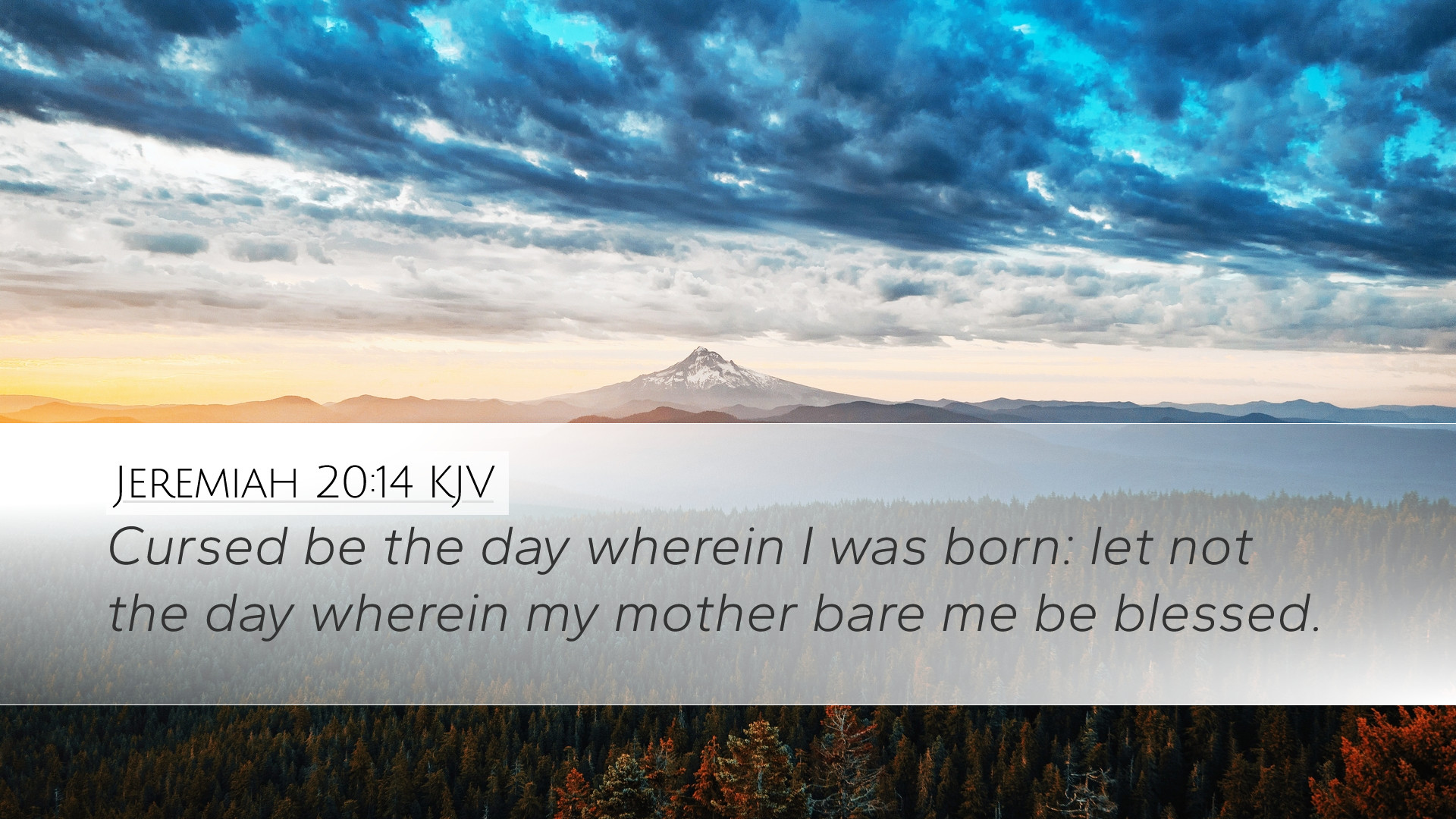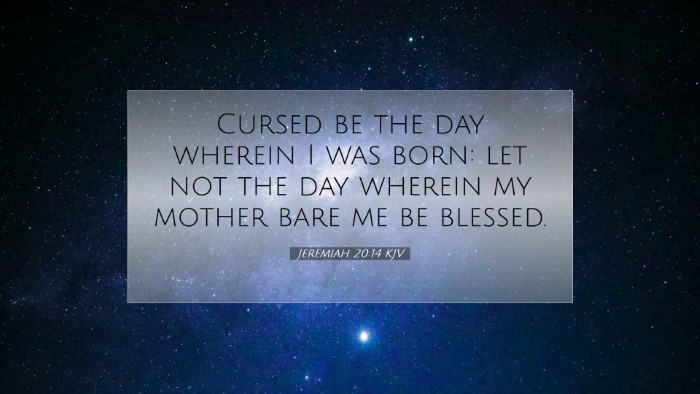Commentary on Jeremiah 20:14
Verse Text: "Cursed be the day wherein I was born: let not the day wherein my mother bare me be blessed."
Introduction
The verse Jeremiah 20:14 presents profound emotional turmoil as the prophet expresses deep lamentation regarding his very existence. This verse serves as a poignant reflection of the struggles faced by God's messengers when confronted with adversity, rejection, and the heavy burdens of prophetic ministry.
Contextual Background
To better grasp the gravity of Jeremiah's proclamation, it is crucial to understand the historical and theological context surrounding his prophetic ministry. Jeremiah, often referred to as the "weeping prophet," encountered severe opposition and persecution as he conveyed God’s messages to the people of Judah.
In Jeremiah 20, particularly, we see a culmination of distress following the harsh treatment he faced from Pashhur, the chief officer of the temple, who had beaten him and put him in stocks.
The Weight of Prophecy
In their respective commentaries, both Matthew Henry and Albert Barnes highlight the deep anguish that comes with prophetic calling. Jeremiah’s lament can be interpreted as a reflection on the burden of prophecy—where the prophet not only carries the word of God but also bears the emotional weight of rejection and persecution.
Matthew Henry notes, "A prophet is not only a messenger but a target of scorn." This understanding emphasizes the personal cost of fidelity to God’s word and the emotional toll it places on the prophet's life.
The Nature of Lamentation
Jeremiah's curse upon his birth provides insight into the nature of lament. According to Adam Clarke, such expressions reveal the raw honesty with which biblical prophets approached God in lamentation. Clarke states, "Jeremiah's words show how deeply he feels the weight of his circumstances." This honest outpouring exemplifies the struggles many believers face, especially when they feel overwhelmed by their trials.
- Emotion in Lament: Lament is often a precursor to healing, as it expresses genuine feelings that may be repressed.
- Validation of Feelings: Clarke supports the notion that such feelings are not a lack of faith but rather a part of the believer's journey.
- Communal Aspect: This lamentation reflects a broader communal grief shared by the people of God during times of trial.
Theological Implications
This verse and its surrounding context raise significant theological questions about suffering, divine purpose, and the role of God's messengers. The curse on the day of his birth can be seen as a poignant question to theologians: Why must the righteous suffer, and what role does lament play in the life of faith?
Albert Barnes comments on the theological significance, asserting that "God allows His servants to feel the weight of their ministry significantly." He emphasizes the importance of understanding suffering within the divine plan and how such experiences shape the character of prophets.
Encouragement in Despair
Despite the overwhelming lament of Jeremiah, Christians are encouraged to recognize that such moments are often pivotal in their spiritual journeys. As Matthew Henry concludes, "It is natural to grieve; yet, amidst lamentations, there is the hope of restoration and renewal." This encourages pastors and theologians to affirm the cyclical nature of lament, leading to eventual hope and redemption.
Conclusion
Jeremiah 20:14 captures the depths of human emotion, revealing the complex relationship between suffering and divine calling. By combining insights from Matthew Henry, Albert Barnes, and Adam Clarke, we restate that lamentation is not an end but a pivotal part of the journey that leads individuals closer to God. In Christ, all mourning is met with grace, and all sorrow with hope.


